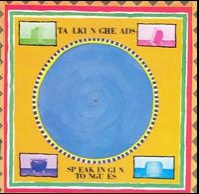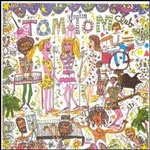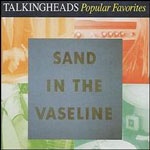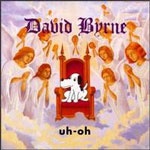Talking Heads Retrospective
by Sean McCarthy
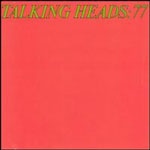
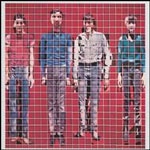
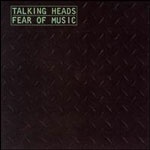
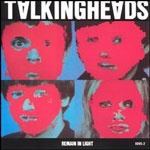
In all of rock, few bands have bridged more genres than the Talking Heads. In their early days as an opening act for the Ramones, the Talking Heads married arty song structures with punk. Lead singer David Byrne became the consummate nerd with his edgy, nervy vocal delivery, while bandmates Tina Weymouth (bass), Chris Frantz (drums) and Jerry Harrison (keys) laid down funky beats decorated with alien textures and theatrical flourishes. Their debut album, Talking Heads: 77 was released during the height of the punk explosion of 1977, and while few of their songs qualified as pure punk, the album yielded the song "Psycho Killer," the first in a long line of memorable songs.
After Talking Heads:77, the band teamed up with producer Brian Eno and continued to bridge genres. The Eno/Talking Heads team bore three classic albums -- More Songs About Music And Food, Fear Of Music and the iconic Remain In Light. In the late '70s and early '80s, where white and black audiences were far more divided in their listening preferences than they are today, Talking Heads effortlessly molded elements of funk, rock and even Third World music into their arsenal. This resulted in classic songs such as "Once in a Lifetime," "Life During Wartime" and their mesmerizing cover of Al Green's "Take Me To The River."
In the '80s, the band became one of the most recognized bands in the early days of MTV. Their Parliament-influenced "Burning Down The House" was immortalized in movies and David Byrne's huge suit look became one of the hallmarks of fashion in the '80s. The band branched out into film with the help of a young, hungry Jonathan Demme. Stop Making Sense is regarded as one of the finest concert films ever produced. Unfortunately, the more popular the band became, the more bitterly divided the band became. Their breakup after their 1988 album Naked was a perfect symbolic end to '80s "college" music before the term "alternative" was born.
The Talking Heads' influence is well-established today. In 2002, they were inducted in the Rock and Roll Hall of Fame. Today, virtually any American band that actively incorporates African rhythms into their sound owes a bit of debt to the Talking Heads. Any band would be lucky to record one album that is considered a classic. The Talking Heads had at least four. For the month of May, The Daily Vault takes a look back at a band whose impact people are just starting to appreciate.
Over the course of the month, the Vault will publish 22 reviews covering the Talking Heads' entire studio catalog, plus a smattering of live discs, collections and side/solo projects from the Weymouth-Frantz collaboration Tom Tom Club and David Byrne in a retrospective that will start on Thursday, May 7 and run every weekday through Friday, May 29. Most of these reviews will be appearing on the Vault for the first time.
Founded in January 1997, the Daily Vault has featured more than 6,000 reviews of more than 2,800 artists from all across the musical spectrum, written by a volunteer staff from around the world. Previous Artist Of The Month retrospectives have spotlighted the work of artists from Tori Amos to Frank Zappa, including the Beatles, Depeche Mode, Garth Brooks, Led Zeppelin, Madonna, Metallica, Pearl Jam, Yes and many others. Themed retrospectives have included punk, hip-hop, classic soul, classic jazz, Broadway musicals, Christian Contemporary Music, live albums and modern prog.
